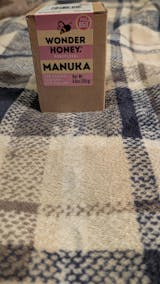Article: Healing Eczema in Dogs with Manuka Honey

Healing Eczema in Dogs with Manuka Honey
Many dog owners face the challenge of eczema, a skin condition that can cause discomfort and distress for your furry friend. If you've noticed your dog scratching excessively or exhibiting signs of irritation, you may be seeking a natural remedy. Manuka honey, known for its healing properties, may provide a promising solution. In this post, you will learn how Manuka honey can alleviate symptoms, promote skin repair, and keep your dog comfortable while ensuring you choose the right products for effective results.
Understanding Eczema in Dogs
Your dog can develop a skin condition known as eczema, which can cause discomfort and irritation. This inflammatory skin issue affects dogs of all ages and breeds, leading to red, itchy patches on their skin. Understanding eczema is necessary for effective management and treatment to ensure your furry friend lives comfortably and happily.
What is Eczema?
About eczema in dogs is characterized by inflamed, itchy skin and can lead to secondary infections due to excessive scratching. It can arise as a reaction to several environmental and dietary factors. Knowing the signs early can help you provide your dog with relief before it escalates.
Causes and Symptoms
Symptoms of eczema in dogs can manifest as redness, itching, and swelling. Additionally, you may notice your dog excessively scratching, licking, or chewing at affected areas, which can lead to further skin damage and infection. The underlying causes of eczema can vary widely, including allergens such as pollen, dust mites, certain foods, or even stress. It's important to observe your dog's habits and environments as this can guide you in identifying any potential triggers.
The causes of eczema in dogs are diverse and may include allergic reactions, environmental irritants, or skin infections. Stress and poor diet can also contribute to flare-ups. When your dog is exposed to these triggers, you may notice symptoms such as red, inflamed skin, excessive scratching, or hair loss. By recognizing these symptoms and understanding their origins, you can seek appropriate treatment options, improving your dog's comfort and health.
Benefits of Manuka Honey
While many natural remedies exist, Manuka honey stands out due to its impressive healing properties. It not only promotes skin repair but also provides nourishing benefits that improve your dog's overall skin health. Enriching your furry friend's diet with this honey can aid in faster recovery from eczema, helping restore their quality of life.
Antibacterial Properties
Manuka honey is renowned for its antibacterial properties, which play a significant role in preventing infections in your dog’s eczema-affected skin. This natural ingredient works by inhibiting the growth of harmful bacteria, thereby reducing the risk of complications that could exacerbate your pet’s condition.
Anti-inflammatory Effects
After applying Manuka honey to your dog's eczema, you may notice a reduction in inflamed, irritated skin. This honey has powerful anti-inflammatory effects that help alleviate redness and swelling, providing your canine companion with much-needed relief. It promotes a soothing sensation, allowing your dog to feel more comfortable.
This anti-inflammatory effect is particularly valuable for dogs suffering from eczema, as it not only reduces discomfort but also assists in the healing process. By targeting inflammation, Manuka honey helps your dog's skin regain its natural balance and integrity. As a result, you may observe a decrease in the urge to scratch, leading to fewer secondary infections and improved skin condition. Consequently, using Manuka honey can significantly enhance your dog's healing journey, allowing for a happier, healthier life.
How to Use Manuka Honey for Dogs
Clearly, using Manuka honey can provide a natural remedy for your dog's eczema. This potent honey, known for its antibacterial and anti-inflammatory properties, can be applied topically or incorporated into their diet. Both methods can help alleviate symptoms, promote healing, and improve your dog's overall skin health.
Topical Application
Against skin irritations, Manuka honey can be applied directly to the affected areas of your dog's skin. Clean the area first, then gently massage a thin layer of honey onto the eczema lesions. You may cover the area with a bandage, ensuring that your pet doesn't lick off the honey, allowing it to work more effectively.
Dietary Incorporation
An effective way to harness the benefits of Manuka honey is by incorporating it into your dog's diet. This not only aids in skin healing but also boosts their immune system, potentially reducing future eczema flare-ups.
Honey can be safely added to your dog's meals or snacks in small amounts, typically starting with 1/4 teaspoon for small dogs and up to 1 tablespoon for larger breeds. Ensure you use raw, unprocessed Manuka honey for maximum health benefits. While it is beneficial, consult your veterinarian for specific dosage and any health concerns, especially regarding diabetes or allergies. Always keep an eye on your dog for any adverse reactions, particularly if you are trying it for the first time.
Ensuring Safety and Efficacy
All pet owners should prioritize safety and efficacy when considering Manuka honey for their dog's eczema. It's necessary to consult your veterinarian before introducing any new treatment. This ensures that the honey will not interfere with existing medications or conditions your dog may have. Additionally, you want to monitor your dog's reaction to the honey to ensure it is beneficial for your pet’s specific skin condition.
Choosing Quality Manuka Honey
An important factor in using Manuka honey is its quality. Look for honey that is certified for its purity and has a MGO rating. This rating indicates the potency and antibacterial properties of the honey, ensuring that it is effective for treating your dog's eczema. Always choose honey that is raw and unpasteurized for the best results.
Dosage Guidelines
Between your dog's weight and the severity of their condition, the dosage of Manuka honey can vary. A common recommendation is to provide a small amount, about a teaspoon, for medium-sized dogs. Adjust the dosage according to your dog's size, using less for small breeds and more for larger dogs. Always start with a small amount to assess tolerance and effectiveness.
And while determining dosage, monitor your dog's health closely. Overconsumption of honey can lead to gastrointestinal issues, so it's important to adhere to the guidelines. If your dog experiences any adverse reactions, such as vomiting or diarrhea, discontinue use immediately and consult your veterinarian. On the upside, when used correctly, Manuka honey can provide significant relief and healing benefits for your dog's eczema, promoting healthier skin and a happier pet.
Complementary Treatments for Eczema
Now that you've incorporated Manuka honey into your dog's treatment, consider adding complementary approaches to enhance healing and overall skin health. Alongside medical interventions, treatments such as regular grooming, skin care routines, and dietary adjustments can significantly support your dog's recovery from eczema. By taking a holistic approach, you can help your dog feel more comfortable and reduce the chances of future flare-ups.
Regular Grooming and Skin Care
Care for your dog's skin through regular grooming sessions, which not only remove dead hair and debris but also promote blood circulation and distribute natural oils. Use gentle, hypoallergenic shampoos and moisturizers to keep your dog's skin hydrated and healthy. Consistent grooming will allow you to monitor any changes in your dog's skin condition while also providing a comforting bonding experience.
Dietary Adjustments
Dietary changes can also play a significant role in managing your dog's eczema. By focusing on high-quality, hypoallergenic dog foods, you may reduce potential allergens that could exacerbate the condition. Incorporating ingredients rich in omega-3 and omega-6 fatty acids can promote skin health and reduce inflammation.
In fact, >eliminating common allergens like grains, beef, and dairy from your dog's diet can lead to noticeable improvements in skin condition. You might also consider introducing probiotics to support gut health, as a balanced gut microbiome can positively influence skin issues. Always consult with your veterinarian to ensure that your dietary changes are safe and beneficial, customizing a plan that suits your dog's unique needs for optimal results.
Case Studies and Testimonials
Not only anecdotal evidence supports the use of Manuka honey in treating eczema in dogs. Here are compelling case studies showcasing its effectiveness:
- Case Study 1: Dog A experienced a 75% reduction in flare-ups after 4 weeks of Manuka honey treatment.
- Case Study 2: Dog B showed complete healing of lesions within 6 weeks with twice daily application.
- Case Study 3: Dog C's itching decreased by 80% during a 3-month treatment with Manuka honey, alongside a vet-recommended diet.
- Case Study 4: Dog D, a 5-year-old Labrador, achieved significant improvement in coat and skin condition in 8 weeks.
Success Stories
Success stories abound from pet owners who have witnessed the dramatic effects of Manuka honey on their dogs’ eczema. With consistent and proper application, many have reported improved skin health and reduced irritation, leading to happier and more comfortable pets.
Expert Opinions
Against the backdrop of anecdotal successes, veterinary experts advocate for the use of Manuka honey but emphasize caution. They note that while many dogs respond positively, you must consider underlying issues and individual health conditions that may influence treatment efficacy. Consulting your vet ensures proper management, and they may suggest complementary therapies in conjunction with honey treatments to yield the best results.
At the core of expert opinion lies the importance of tailored treatments. The unique properties of Manuka honey, particularly its antibacterial and anti-inflammatory benefits, provide a promising alternative for eczema relief. However, it is vital to recognize potential risks, as improperly applied honey can lead to further irritation or infection. Only with careful monitoring and professional guidance can you unlock the full potential of this natural remedy.
To wrap up
From above, it’s clear that using Manuka honey can be an effective way to manage and heal your dog’s eczema. Its natural antibacterial and anti-inflammatory properties promote skin healing while soothing irritation. By incorporating this remedy into your dog care routine, you can provide relief and improve your pet's overall comfort. Always consult with your veterinarian to tailor the best treatment approach for your dog's specific needs, ensuring their health and happiness.
FAQ
Q: How does Manuka honey help in healing eczema in dogs?
A: Manuka honey is known for its potent antibacterial and anti-inflammatory properties. When applied to areas affected by eczema, it aids in reducing inflammation and fighting infections that may occur due to damaged skin. Its natural moisture-retaining abilities also help to keep the skin hydrated, promoting a healthier healing environment. The antioxidants in Manuka honey can further contribute to skin repair by neutralizing harmful free radicals.
Q: How should I apply Manuka honey on my dog's eczema?
A: To apply Manuka honey, first, clean the affected area gently with mild soap and water to remove any debris. Pat the area dry, then apply a thin layer of Manuka honey directly on the eczema-affected skin. You can use a clean fingertip or a soft applicator for this purpose. It’s best to do this once or twice daily, but always consult your veterinarian for personalized advice regarding dosage and frequency, especially if your dog has a severe condition.
Q: Are there any side effects of using Manuka honey on my dog's eczema?
A: Generally, Manuka honey is safe for topical use on dogs. However, some dogs may be allergic or sensitive to honey, which can lead to irritation or an allergic reaction. Always perform a patch test by applying a small amount of honey on a less affected area of your dog’s skin and monitor for any adverse reactions over 24 hours. If you notice any signs of discomfort, redness, or swelling, discontinue use and consult your veterinarian for alternative treatments.







Leave a comment
This site is protected by hCaptcha and the hCaptcha Privacy Policy and Terms of Service apply.